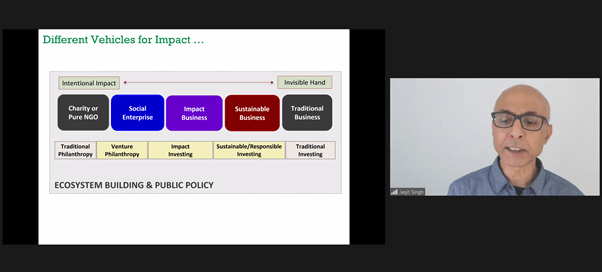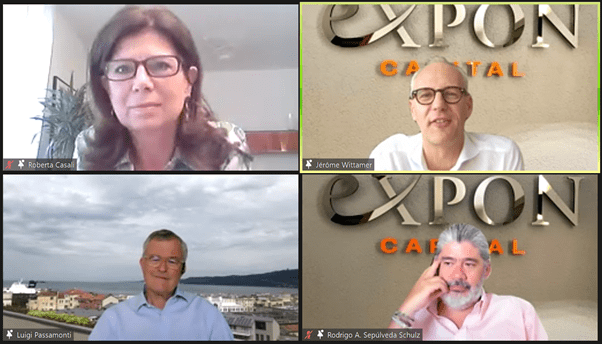47 board appointments for INSEAD Directors Network members
6 July 2021
Members Board & Corporate Governance Positions Announcement Q2 2021
INSEAD’s International Directors Network, IDN is proudly sharing the recent appointments for the quarter ended 31 May 2021 of board and corporate governance positions of our members, truly recognising our members and the strength of our IDN network.
IDN members have been appointed to 47 new board positions in 20 countries, summing up to 445 position announcements since 2017.

As a member of IDN, the network of INSEAD International Board Directors, (full membership is open to all INSEAD Alumni with appropriate directorship experience and is automatic for Certified Directors (IDP-C) from INSEAD’s International Directors Program (IDP)), you can be truly proud of your network!
You will find the IDN members with new board positions below. Why don’t you help share our network’s achievement via Linkedin, as well as also position yourself and your membership of a vibrant network via this Linkedin post.
And take the time to connect with your fellow IDN members at LinkedIn and expand your board contacts by clicking their names below and connecting with them!
To date, IDP has been completed by 1,378 IDP and IDPB participants, with 1064 certified IDP-C/ IDBP-C directors, and our International Board Network IDN of INSEAD Alumni of 1,526 members.
IDN works closely with INSEAD Corporate Governance Centre, which undertakes cutting-edge research and teaching tailored to the needs of boards and international directors. The Centre fosters a global dialogue on the challenges of corporate governance and leadership in an international context.
INSEAD Directors’ Network – Members New Board & Corporate Governance Positions
IDN members – Certified IDP-C Board Directors
Vitor Augusto Brinquete Bento – May 2021 – Chairman & CEO of Portuguese Banking Association (Private, HQ Portugal)
Dan Bihi-Zenou – January 2020 – Chairman of Capital Real Estate SA & Chairman of Arcenter SA (Private, HQ Switzerland)
Gianfranco Bisagni – January 2020 – Chairman of the supervisory board at Unicredit Bank Austria AG (Listed, HQ Austria), October 2020 – Deputy Chairman of Supervisory board at Unicredit Bank Hungary ZRT. (Private, HQ Hungary), April 2020 – Deputy Chairman of Supervisory board at AO Unicredit Bank (Not Listed, HQ Russia), October 2020 – Member of Supervisory Board at Zagrebacka Banka D.D. (Listed, HQ Croatia)
Stefan Buser – April 2021 – Board member at Sedimentum AG (Private, HQ Switzerland)
Roberta Casali – April 2021 – Non-Executive Board Director and Chair of the Internal Control Committee at ARCA Fondi Sgr (Private, HQ Italy)
Katia Ciesielska – May 2021 – Non-executive Director at Pears Global Real Estate (Private, HQ Luxembourg)
Timothy Cosulich – April 2021 – Vice Chairman and Board Member of International Bunker Industry Association (Private, HQ UK)
Pierre Dejoux – April 2021 – Non-Executive Board Director at Bowman Power group (Private, HQ UK ), January 2019 – VP and Board member of Special Olympics France (NGO, HQ France)
Liselotte Engstam – March 2021 – Chair at Boards Impact Forum, Climate Governance Initiative Nordic in collaboration with World Economic Forum (Foundation, HQ Sweden)
Daniel Frutig – April 2021 – Chairman at Cicor Technologies Ltd (Listed, HQ Switzerland) & March 2021 – Board member at AGRO AG (Private , Switzerland)
Jean-Marie Greindl – April 2021 – Chairman of the Board at XLG (Private, HQ Belgium)
Dr. Heinrich Hugenschmidt – April 2021 – Non Executive Board Member of Fankhauser Media Ltd (Private, HQ Switzerland)
Caroline Jellinck – May 2021 – Chair’s Advisory Board Member at Science World BC (NFP, HQ Vancouver Canada)
Nooraya Khan – March 2021 – Non Executive Director MTN South Africa (Private, HQ South Africa)
Noelle Ahlberg Kleiterp – May 2021- Member Board of Trustees & Member of Governance Committee at Zurich International School (non-profit, Switzerland)
Reinhard Krickl – May 2021 – Chairperson and Non Executive Director at Axem Neurotechnology (Private, HQ Canada)
Richard LePere – March 2021 – Independent Non Executive Board Director at Fullerton Lux Funds (FLF) SICAV (Private, HQ Luxembourg)
Colin Low – March 2021 – Independent Board Director at Kacific Satellites Group Limited (Private, HQ Singapore)
Bert Meerstadt – May 2021 – Managing Director at Hendrick de Keyser (NGO, HQ Amsterdam, Netherlands)
Elena Pistone – May 2021 – Independent Board Director of REVO SPAC (Listed, HQ Italy)
Pamela Ravasio – May 2021 – Independent Non-Executive Director at Polygiene AB (Listed, HQ Sweden)
Michel Rzonzef – March 2021 – Chairman of the Board at SGI, Non-Executive Board Member at LBAN (Luxembourg Business Angel Network), & Non Executive Board Member at BML(Business Mentoring Luxembourg)
Thomas Seale – May 2021 – Member of Board of Directors at Columbia Threadneedle SICAV (Private, HQ Luxembourg)
Mark Shmulevich – October 2020 – Chairman, Digital Transformation chapter, and Board Member at SGTech (Trade federation, HQ Singapore)
Nicoline Spruijt – April 2021 – Advisory Board member at ACA-IT Solutions (Private, HQ Belgium), Non-Executive Board Member at Valisana (Hospital Government, HQ Belgium) & May 2021 – Non-Executive Board Member at Armen Tekort (NGO, HQ Belgium)
Sheila Struyck – April 2021 – Non-Executive Director/ RvC at Meatless (Private, HQ Netherlands)
David Surdeau – April 2021- Non-Executive Director at Red Dragon Pubs Ltd (Private, HQ Wales UK)
Kees van der Vleuten – January 2021 – Non-executive Chair, Fenix Investment Group, (Private, HQ Brussels/Amsterdam)
Dominique Vanhamme – April 2021 – Non-executive Director at Odyssey (Private, HQ France)
IDN Members – Board Directors
Wanching Ang – March 2021 – Non-executive Board member at HQ Holding GmbH & Co KG (Private, Germany)
Jan De Moor – May 2021 – Independent Board Member at VlaanderenConnect (Government Agency, HQ Belgium)
Morgan Fowles – May 2020 – Director at Tala Ltd (Private, HQ UK)
Andrew Kristensen – April 2021 – Non-Executive Board Member at Svensk Byggtjänst (Private, HQ Sweden)
Margot Schumacher – January 2021 – Non-Executive Board Member at Thales Netherlands (Listed, HQ France)
Jan-Paul van Term – March 2021 – CEO at Hill+Knowlton Strategies (Private, HQ Netherlands)
Liz Wall – May 2021 – Non-Executive Chair at Royal Road Minerals (Listed, HQ Jersey)
Previous announcements and more information
Previous board position announcements by shared by IDN;
April 2021 December 2020 September 2020 March 2020 October 2019 July 2019 February 2019 November 2018 July 2018 April 2018 January 2018 October 2017
For organisations interested in partnering with IDN, please contact IDN President, Helen Pitcher OBE, at [email protected]
On Behalf of the INSEAD International Directors’ Network Board,
 Helen Wiseman,
Helen Wiseman,
IDP-C, IDN & NAA Australia Board Member,
NED at multiple companies
www.linkedin.com/in/helenwiseman
[email protected]
For more information about :
How to become a partner of IDN, contact our President, Helen Pitcher here
INSEAD Directors’ Network, click here.
INSEAD Corporate Governance Centre here.















